
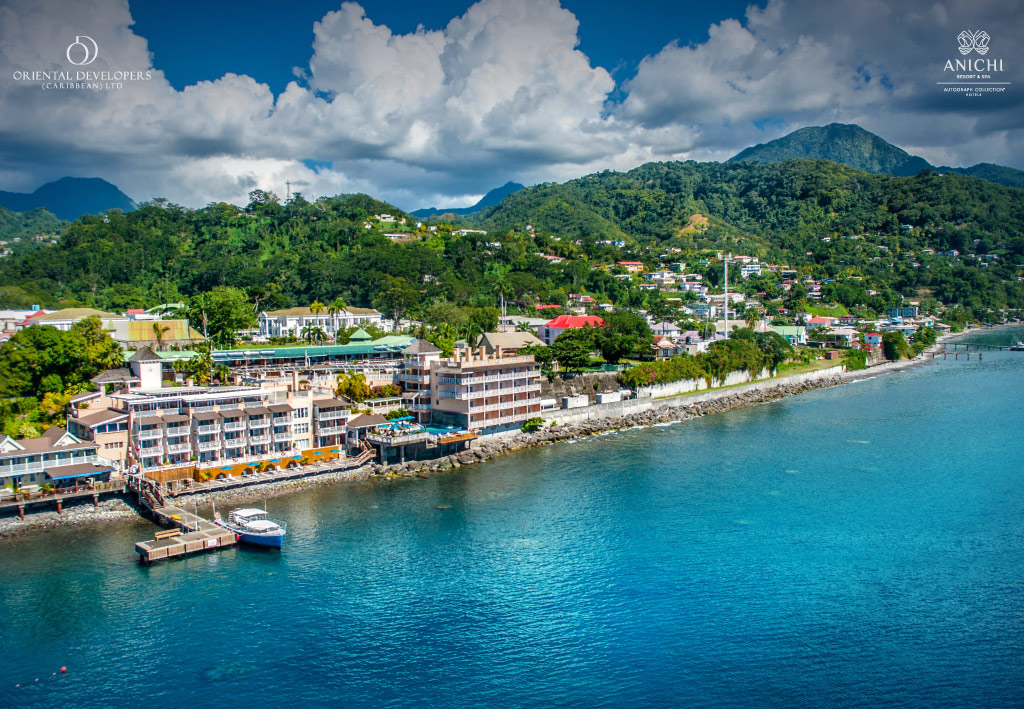
Roseau, the capital of Dominica.
In the heart of the Caribbean, among hills cloaked in dense tropical forest, Dominica offers investors a unique combination of legal reliability, environmental integrity, and a cultural way of life in which nature remains an inseparable part of national identity. A significant part of the country’s territory is made up of protected natural areas — from national parks to waterfalls safeguarded both by national legislation and international conventions. Here, volcanic lakes, thermal springs, and cascading crystal-clear rivers coexist, forming an ecosystem of exceptional biodiversity that attracts not only tourists, but also environmentalists.
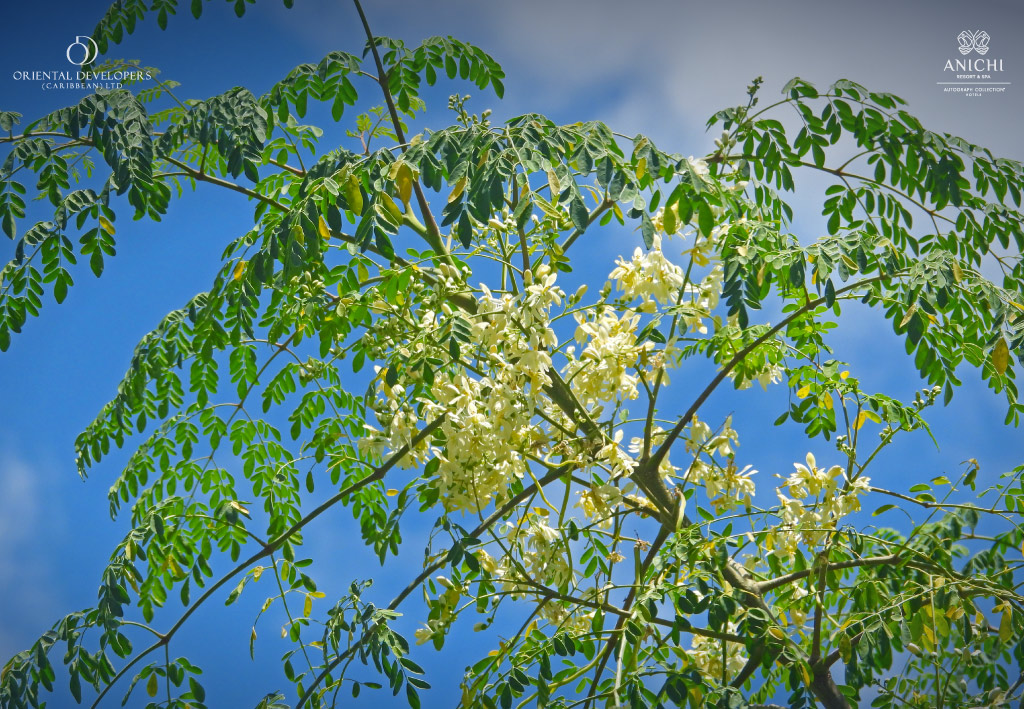
Moringa flowers.
Among the many endemic and cultivated plants, one of the island’s most prized is moringa (Moringa oleifera) — a fast-growing tree whose leaves, pods, and seeds have been used for centuries as a source of nutrition and natural medicine. In parts of Africa and South Asia, moringa is known as the “tree of life” or “miracle tree” for its ability to thrive in arid conditions and enrich diets with protein, vitamins, and minerals.
In Dominica, moringa grows naturally, without artificial irrigation or chemical fertilisers, reflecting the country’s careful approach to natural resources. Dominicans value the tree for its exceptional nutritional and medicinal properties.
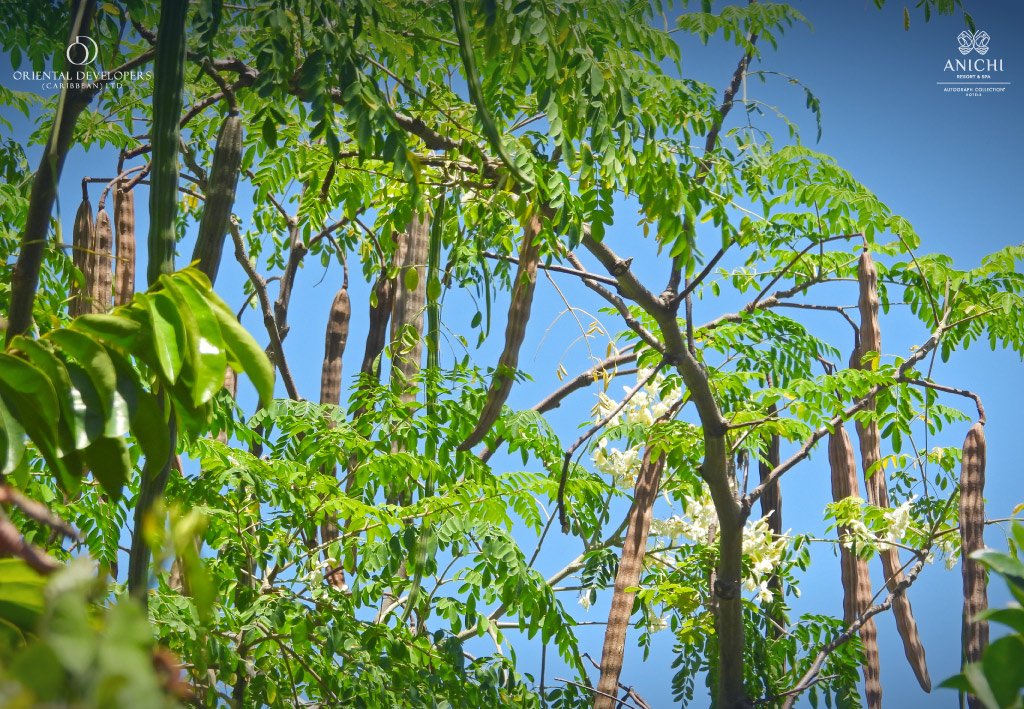
Moringa pods on the tree.
Its leaves contain:
Moringa is also a source of iron, magnesium, vitamin A and antioxidants, making it a valuable food in regions with limited access to a varied diet. In Africa, it is sometimes called “heavenly bread”, while in the Philippines it is known as the “tree of salvation”. In Ayurvedic tradition, it is credited with preventing up to 300 diseases.
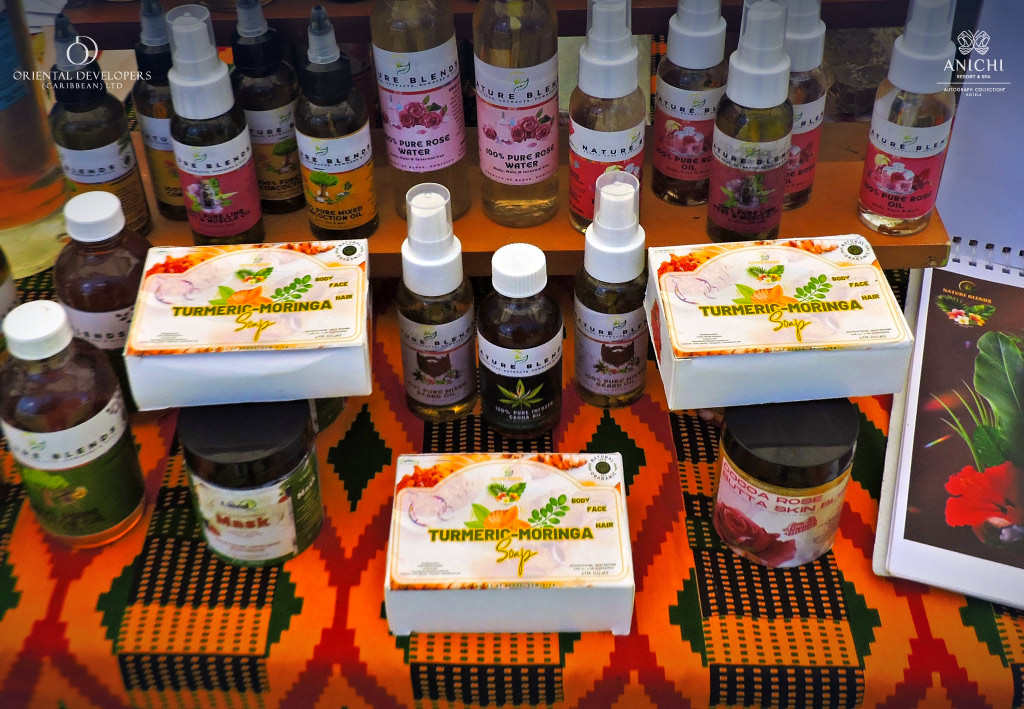
Turmeric–moringa soap for body and face, made in Dominica.
Studies suggest that moringa leaf extracts possess anti-inflammatory, antibacterial and hypoglycaemic properties. Laboratory research on cell cultures and animal models has shown that moringa extracts can slow the growth of certain cancer cells, including pancreatic cancer cells, and enhance the effects of some chemotherapy drugs. However, there is still no conclusive clinical evidence in humans confirming these effects.
In traditional medicine worldwide, moringa is used to support the immune system, regulate blood sugar levels, and as a natural remedy for fatigue or recovery after physical exertion.
In Dominica, moringa is part of everyday culture: its leaves are added to soups, dried for tea, or ground into powder to be consumed as a dietary supplement. For locals, this is not a “trendy superfood” but a centuries-old tradition — what economists call sustainable development, and ordinary people call living in harmony with nature.
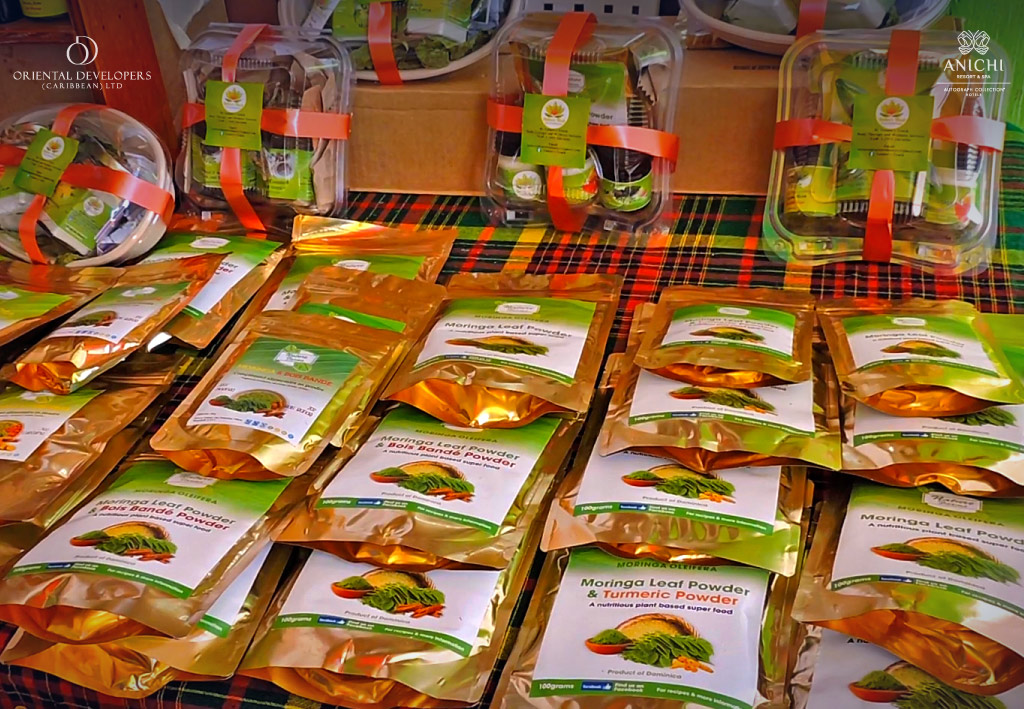
Dominica moringa leaf powder.
Dominica’s Citizenship by Investment Programme is not only a legal route to freedom of movement and a secure jurisdiction, but also an invitation to join a country where environmental sustainability and human well-being are embedded in the very model of development. On this unique island, natural resources — from untouched forests to the nutritious leaves of the moringa tree — are not depleted, but carefully replenished, forming the foundation for health, cultural identity, and long-term economic value.
Moringa is just one example of how nature and people coexist in symbiosis in Dominica: the tree grows without artificial intervention, enriches the diet, and supports health, while knowledge of its uses and benefits is preserved and passed down through families and communities. The citizenship programme works in much the same way: it attracts investment without compromising the island’s ecosystems or cultural traditions.
For an investor, this means owning an asset that does not depreciate due to market fluctuations or political turbulence. Dominica’s ecosystem is protected by law, international commitments, and the lifestyle of its people. By choosing Dominica, you gain not only a new legal status, but also a share in a living ecosystem where capital and nature grow in balance — like a tree and the earth that nourishes its roots.